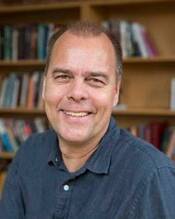From the Chair
 Classical humanists were often deeply critical about the rise of cinema in the early twentieth century, many authors considered the coming of personal computing as the downfall of good writing, and lots of pedagogues today continue to consider the spread of smart phones as a direct path toward mindless distraction. The history of media during the last hundred years has witnessed tremendous processes of acceleration: one innovation replaces the previous at ever shorter intervals. And yet, the arguments we often use to applaud or condemn the arrival of new media are often the same. They repeat well-known tropes much older than our modern ecology of technological media.
Classical humanists were often deeply critical about the rise of cinema in the early twentieth century, many authors considered the coming of personal computing as the downfall of good writing, and lots of pedagogues today continue to consider the spread of smart phones as a direct path toward mindless distraction. The history of media during the last hundred years has witnessed tremendous processes of acceleration: one innovation replaces the previous at ever shorter intervals. And yet, the arguments we often use to applaud or condemn the arrival of new media are often the same. They repeat well-known tropes much older than our modern ecology of technological media.
The graduate joint program in Comparative Media Analysis and Practice (CMAP) wants to offer a much more nuanced understanding of media history and how technological innovations affect our personal, social, and political lives. Instead of simply pinning the old against the new, our seminars, workshops, and internship experiences provide differentiating approaches to the role of modern media in which we pay equal attention to disruptive inventions and legacy media, unfulfilled hopes and forgotten development paths. As studied in CMAP, media are about much more than communicating messages from one user to another. They shape our condition of being and provide footholds to reshape existing networks of identity, sociality, and belonging– of what we can know, how we may act, and what we can hope for.
CMAP was founded in 2016 as an interdisciplinary program allowing select students in the humanities and social sciences to add a joint-Ph.D. to their doctoral education at Vanderbilt. It invites students to think outside the box of their home disciplines, explore trans-institutional connections and collaborations, and develop cutting-edge strategies of scholarly communication and public engagement. Our students use the program to expand and sharpen their scholarly portfolio as much as to position themselves for successful transformative careers beyond the academy.
It’s been an extraordinary honor and pleasure to work with our diverse students in this program over the past five years. Their intellectual curiosity and interdisciplinary energy, their collaborative spirit and experimental project work have been truly inspiring!

Lutz Koepnick
Max Kade Foundation Chair in German Studies
Professor of Cinema and Media Arts
Director, Comparative Media Analysis and Practice
